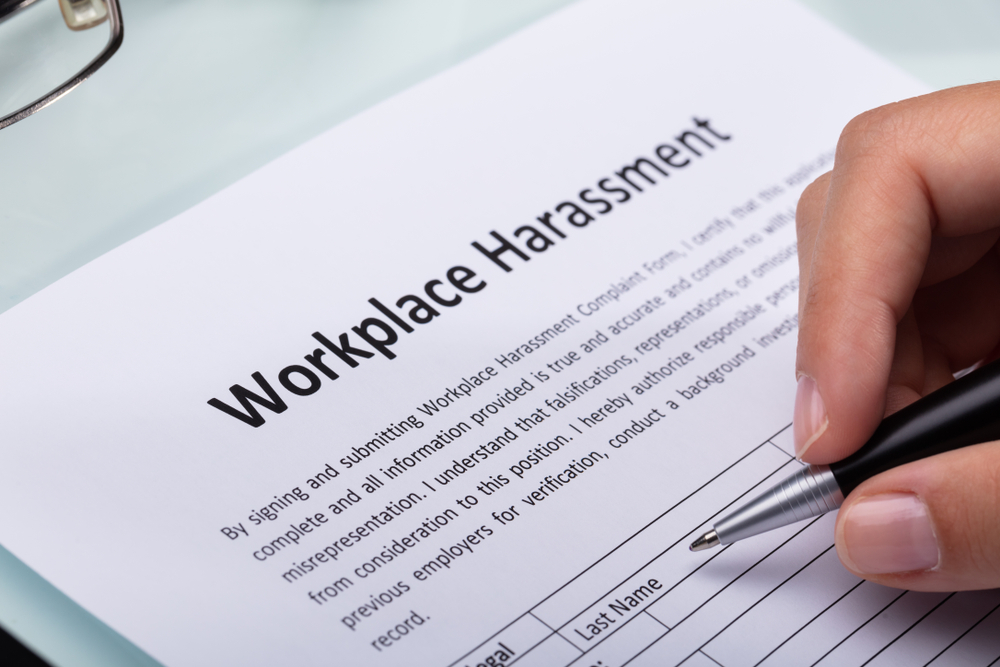
The #MeToo and Time’s Up social media movements have created significant awareness and encouraged employees to speak out openly against sexual harassment and discrimination in the workplace. Both these movements continue to trend on social media platforms almost daily and have highlighted how widespread sexual harassment continues to be in the workplace. For all the positive steps that have been taken to stamp out workplace discrimination, it remains an increasingly publicised topic. Amy White and Georgina Hardcastle of Rix & Kay’s Employment Team take a closer look.
Shocking Statistics
A report produced following the #MeToo and Time’s Up movements found that, of the 1,000 employees questioned, three-quarters had experienced sexual harassment at work (Equality and Human Rights Commission (EHRC) ‘Turning Tables: Ending sexual harassment at work’ March 2018).
Can employers easily spot discrimination in the workplace?
The answer is no, not always. Discrimination can take various forms and occur at all stages of the employment life cycle. It can be subtle and is often not easy to spot.
What one person might consider playful insults and jokes, another might find highly offensive. This type of workplace ‘banter’ can amount to harassment and can be very easy to miss. Additionally, employees who make a complaint of discrimination or sexual harassment often fear being victimised by way of bullying or intimidating behaviour by management or colleagues. Once again, this can be mistaken as tongue-in-cheek passing comments.
What preventative measures can employers take?
A good starting point would be to implement and commit to an Equal Opportunities and Anti-bullying and Harassment policy to help you follow clear and recognised procedures when tackling inappropriate behaviour. You might also want to review the existing workplace culture and, where necessary, take steps to minimise ‘banter’ that includes inappropriate comments and jokes.
There exists a degree of unwillingness to report experiences of sexual harassment in the workplace. As such, employers must not ‘brush off’ unwanted treatment as ‘unimportant’. Rather, they should encourage a more open and transparent working environment where victims of discrimination feel comfortable enough to come forward and report their experience.
The importance of effective diversity training for all employees cannot be overstated. Best practice suggests that online training tools or links to the Company’s Handbook might not provide the most beneficial training. Rather, interactive training sessions that teach employees how to display empathy and respect for others, reinforce what behaviour and language is deemed inappropriate and what they should do if they have an issue, are likely to have the greatest impact. You could also consider further targeted training for management, including appointing diversity champions.
And if employers don’t take preventative measures?
Reputational damage resulting from claims can be caused in an instant through the power of social media. Widespread workplace discrimination often leads to poor employee morale and productivity, trust is broken and there is, inevitably, a financial impact on the business. In an analysis of more than 500 workplaces it was found that workplace discrimination costs the UK economy £127 billion every year (‘The Value of Diversity’ report – Centre for Economics and Business Research February 2018).
Employers can also be held vicariously liable for discriminatory acts committed by their employees during the course of employment. Would you expect to be held liable for sexual harassment committed by an employee in the car journey home from the work Christmas party? Well, in such a situation, as the employer, you could be held vicariously liable for the act of harassment. Employers can potentially avoid liability if they can show that they took all reasonable steps to prevent the employee from committing the discriminatory act, including providing effective training, not simply paying lip service to equality policies and procedures.
What does the future hold?
Employers are often concerned that discrimination cases are being brought over increasingly trivial matters. Such concern should not however, stop employers from seeking to establish an open workplace culture free from inequality of employment. In light of the recent high profile sexual harassment cases, there have been calls for the government to take action to address the prevalence of discrimination in the workplace, but in the meantime employers should do everything they can to stay on top of their game.
For more information on managing discrimination in the workplace, contact Rix & Kay’s Employment Team.
Amy White: amywhite@rixandkay.co.uk
Georgina Hardcastle: georginahardcastle@rixandkay.co.uk


